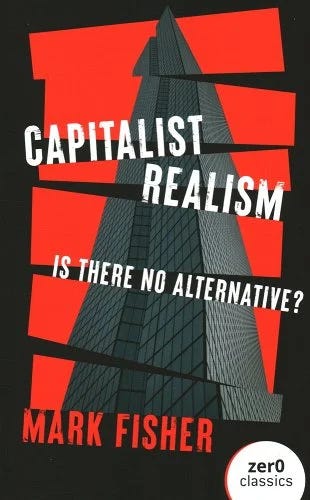What Stalinism and late capitalism have in common
The Wire, Luigi Mangione, and why we spend so much time in an "efficient" capitalist society dealing with Soviet-style bureaucracies.
In season 4 of The Wire, the disgraced police officer Prez leaves the Baltimore Police Department after an accidental shooting and becomes a math teacher in Baltimore’s public school system. As soon as he gets there, an administrator explains to the educators in a meeting the importance of teaching to the standardized tests that determines how much funding the school district will get in the coming years. Prez smirks, and tells another teacher that they are doing the same thing he did as a cop: they are “juking the stats.”
In the context of policing, “juking the stats” refers to the efforts by police departments to massage their overall numbers to make them look more competent. In season 2, when a cargo ship container full of dead prostitutes shows up in the Port of Baltimore, there’s a bureaucratic fight over who has to take on the case. In most copaganda, intrepid police officers would be champing at the bit to take on such a high-profile case (“I just made it my jurisdiction!”), but in the world of The Wire (a world that is much closer to reality than other cop shows), the fight is about trying to push off the murders to another policing jurisdiction. The reasoning is that a case like this — most likely involving either organized crime, corruption, or both — is unlikely to be solved, and as such, will absolutely fuck the Baltimore Police Department’s annual solve percentages.
Anyone who has worked in the public sector knows that your success is judged by numbers or stats that have little to do with what is actually meaningful in your work: the library I worked at justified its existence at the end of the year with numbers of books circulated, number of people through the door, etc. We knew that our real impact wasn’t as easy to quantify: I checked out hundreds of books that year, but knew that it was more meaningful that I spent 10 hours over the course of three weeks helping a single disabled man find housing, or that we got the ambulance to the library quick when a patron was in the early stages of an opioid overdose. Teachers universally despise standardized testing as getting in the way of actual education; police officers know their “solve rate” doesn’t reflect how safe citizens feel in their communities.
But because our governments are under intense bipartisan pressure to prove that they are worth the tax dollars being spent on them, a huge amount of their energy is directed towards juking stats. The late, great blogger Mark Fisher (also known as k-punk) pointed out in his fabulous book Capitalist Realism: Is There No Alternative? that this tendency in modern capitalist societies actually closely resembles what life was like in Stalin’s Russia:
Keep reading with a 7-day free trial
Subscribe to Better Strangers to keep reading this post and get 7 days of free access to the full post archives.




